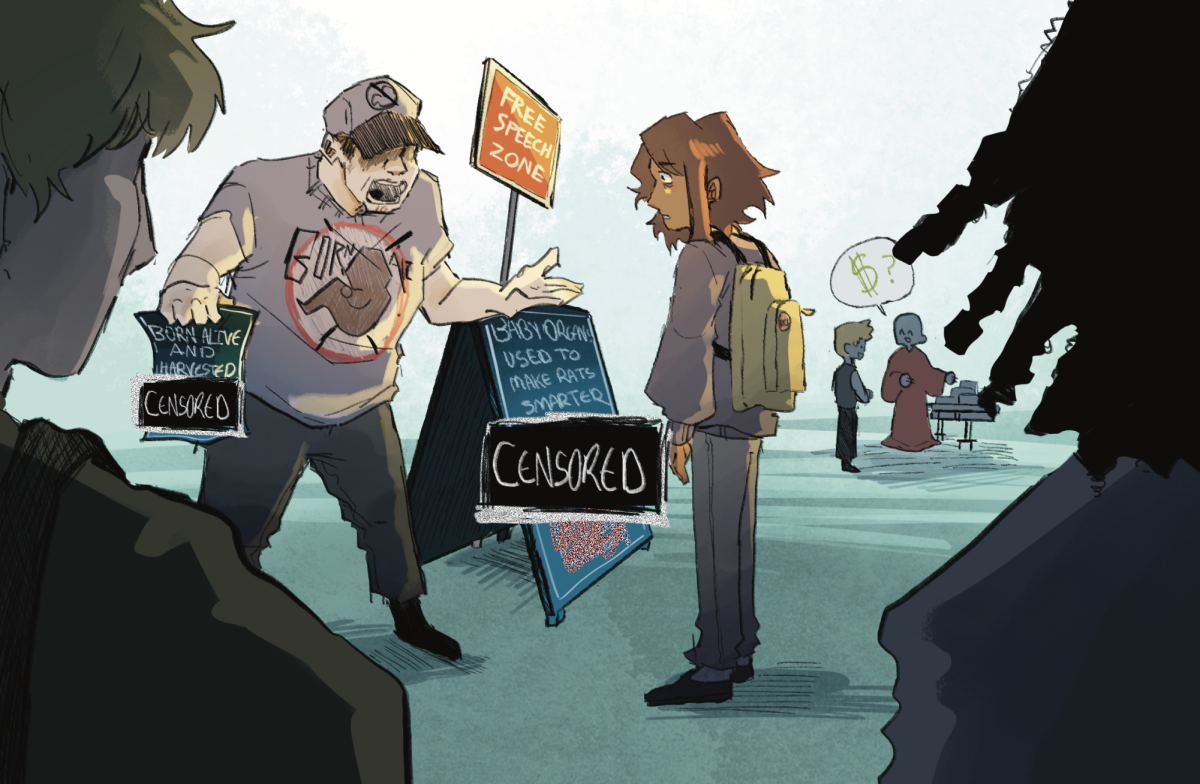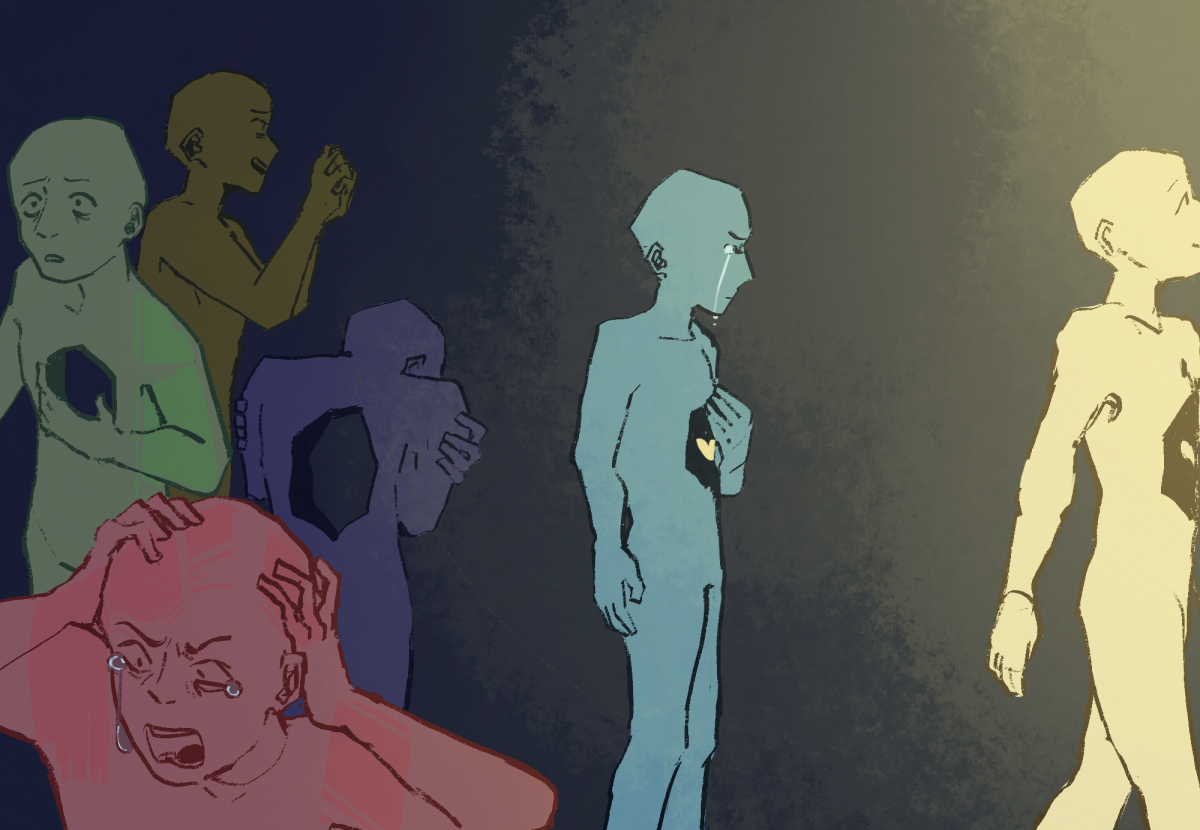By Corinne Love / Senior staff assistant

Sweet misery (Source- stock.xchng)
By Corinne Love / Senior staff assistant
Rather than “drowning out my sorrows,” in a bar, or taking antidepressants, I eat chocolate. In fact, I consume more chocolate than what’s probably necessary.
Many people consume a lot of chocolate, not a real reason for concern.
However, according to a new study there might be an actual link between excessive chocolate consumption and depression.
What constitutes as excessive chocolate consumption?
Well, that’s left up to the individual but it might be safe to say anything that surpasses “good measure” might be a bit excessive.
For example, if you’re like me and the bottom of your bookbag is littered with candy wrappers, it might be time for an intervention.
The study, published in “Archives of Internal Medicine,” states that those who are depressed eat upwards of 55 percent more chocolate than those who are happy.
The logic seems a bit faulty.
Of course, when people are feeling down, they’re likely to eat more chocolate.
Just the same as for some people when the tough get going, the tough eat mashed potatoes.
Chocolate is a comfort food.
Comfort foods exist for a reason. Simply put, they comfort.
When people are sad they do not normally turn to green bean casserole for an instant picker-upper.
Comfort foods are what people enjoy, and these foods take people to their “happy places.”
For some, those happy places are the rich and chocolate-y delights found in a Hershey’s bar.
Despite the fact that comfort foods are comforting (kind of a “duh” to everyone), science actually has little research that shows the chocolate can be linked to depression.
That was until now.
Seriously, whoever brainstormed this idea of researching chocolate and depression might be a chocolate hater.
Maybe that’s a bit far-fetched, but the suggestion that chocolate can do more than make mouths happy, and teeth fearful, is worrisome.
The results of the study go on to suggest that a dependence on chocolate is likely to give leeway to emotional overeating and quick bouts of happiness followed by the blues later.
A study conducted in 2007 showed that chocolate did in fact, improve mood.
Yet, the mood was only improved for about three minutes.
Which in some cases is how long it takes to eat a piece of candy.
If the results of this study actually seem to be conclusive, we all will have to consider the lasting psychological impact of Valentine’s Day.
While the study seems simplistic, the notion that chocolate eaters could be more prone to depression isn’t.
Chocolate stimulates the levels of serotonin in the brain as well as dopamine and boosts blood sugar.
However, so does certain types of pasta and exercise.
What’s next? Will they find a link between spaghetti and manic depressive disorder?
Joking aside, the researchers found similar effects on the brain from taking anti-depressants and engaging in exercise.
In the article for CNN.com, multiple doctors offer chocoholics other ways to “cope” with their chocolate addiction.
The premise of these coping devices is to stop said self-proclaimed chocoholics from emotional overeating.
These coping devices include possible psychotherapy, savoring a piece of chocolate, and even yes, again the antidepressants.
It should be mentioned that prescribing antidepressants for someone with a sweet tooth seems a bit, well, extreme.
The researchers suggest that chocoholics should examine how and when they consume chocolate, and be aware of any patterns involved with their chocolate eating.
All of these suggestions really take the fun out of candy and the research seems plausible.
Some people do indulge in certain behaviors when feeling blue, but the research also left out other factors that would have drawn a more concrete result.
Perhaps that’s the point of most studies anyway.
The study was not designed originally to investigate the link between chocolate and mood.
Neither did the study differentiate between types of chocolate, such as dark chocolate, which has been scientifically proven to be good for your heart.
In an article for the Los Angeles Times, psychologist Marcia Levin Pelchat stated “It’s unlikely that chocolate makes people depressed.”
Whew, that was a close one.
Pelchat studies food cravings at the Monell Chemical Senses Center in Philadelphia.
Pelchat was not involved in the original study but goes on to say that chocolate cravings, like many other cravings are a learned behavior.
Chocolate fits that bill.
Our culture primes us for using chocolate as a mood lifter. It would be difficult finding an American who didn’t link chocolate to feeling good.
Needless to say, with all this research one might think twice before breaking into a Kit Kat bar; people’s mental health may depend on it.






